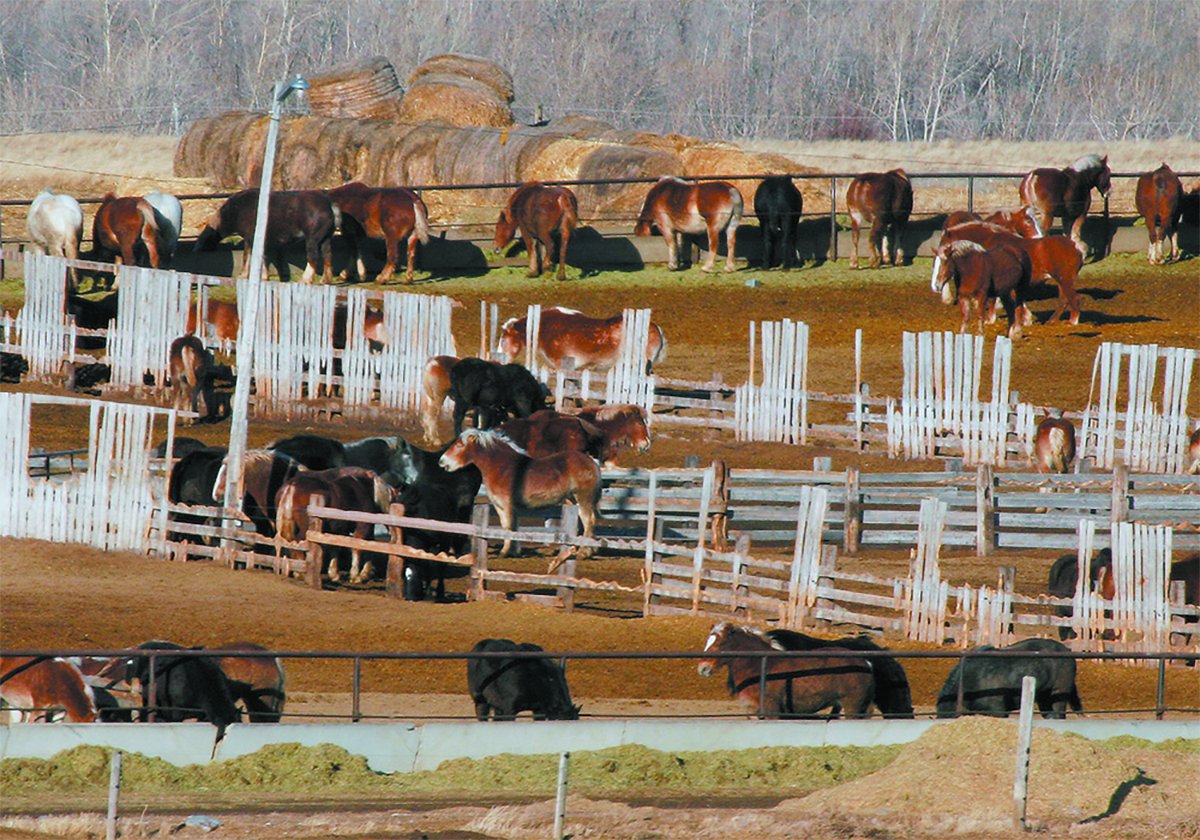The United States and the European Union have reached a tentative agreement to end a 25 year dispute over beef trade, but Canada is expected to see little benefit.
The EU has refused for decades to accept beef from Canada or the U.S. because of the use of six growth promoting hormones, saying the products are harmful to human health.
The new deal allows the U.S. duty- free access on 20,000 tonnes of beef without hormones in the first three years, increasing to 40,000 tonnes in the fourth year.
Read Also

Canada’s slaughter horse industry lacks transparency
The lack of clear reporting and public access to data keeps the industry largely hidden, leaving questions about humane treatment and traceability unanswered.
The U.S. would halt retaliatory duties on a list of products that changes regularly. The duties were allowed after the World Trade Organization ruled the EU was behaving unfairly because there was not enough scientific evidence linking health impacts to eating beef treated with hormones.
Me’shel Belanger, a spokesperson for International Trade Canada, said via e-mail that Canada and the EU continue to discuss the issue.
Ted Haney of the Canada Beef Export Federation calculates that if the U.S. is allowed 20,000 tonnes, then Canada should receive access to 1,300 tonnes, which would increase to 3,000 tonnes in three years.
“It is a relatively small volume of preferential access that will be accorded to Canada if it is based on the level of damage share established by the original WTO process,” he said.
“If Canada gets 1,300 tonnes using that mathematical approach, that is not very exciting to us. The EU has discriminated against Canada.”
Disputes also exist over hot water and steam pasteurization of carcasses used in Canadian plants to clean pathogens. The EU accepts these processes in American plants.
“No major plant is going to shut those very important interventions for food safety,” Haney said.
“They are not willing to shut down their pasteurization units for Europe. That is just not acceptable.”
The EU quota is 11,500 tonnes established in 1985. Canada exported beef to Europe in the 1970s but it dropped off because of high subsidies.
“By the time the hormone free protocol was put in place in 1985, our exports had already dwindled dramatically because of the other protectionist policies,” Haney said.
Sunterra Meats in Innisfail, Alta., gained EU plant certification last year and has shipped mostly bison.
The largest barrier is gathering enough animals that fit the requirements, said Miles Kliner of Sunterra. It is a year long commitment for producers who must not use growth promoting hormones and follow other record keeping specifications.
“You have to satisfy the regulations and there are different regulations for each country,” he said.
The shipments have been small, but it is worthwhile for plants with the ability to handle specialty markets.
“It has been worthwhile for the bison equation and on the beef side we are just on the verge of getting our first shipment going over there,” he said.
“We believe it can be really good for us. We want it to be good for us 52 weeks a year. That is what you try and get towards.”

















